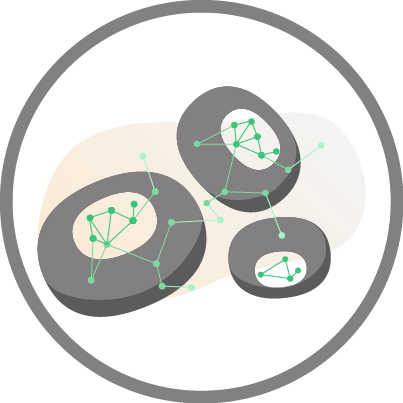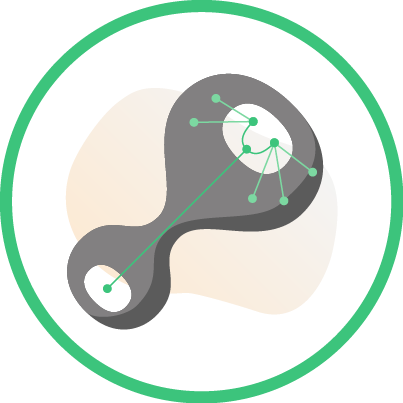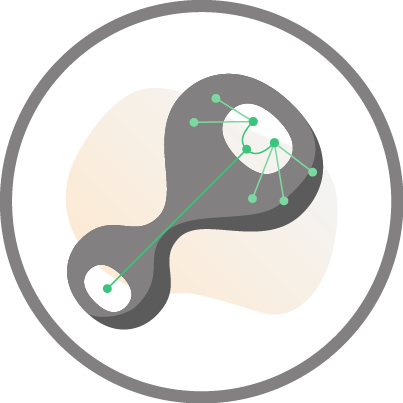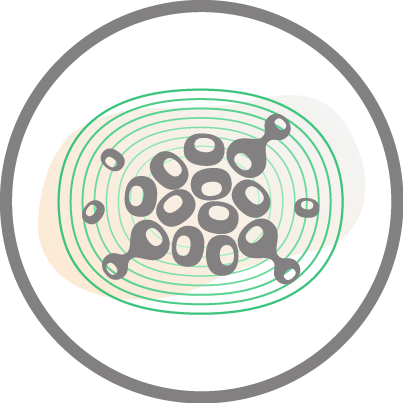Research
Research at the forefront of regenerative medicine
Research in the Zandstra Stem Cell Bioengineering lab applies engineering design principles, computational modeling, and fundamental stem cell biology across all our endeavors to advance understanding of cell fate control mechanisms and to enable new and accessible therapeutic approaches to disease treatment, particularly focusing on opportunities where the unique properties of cells in the blood-forming system can be leveraged.Multi-scale simulation of human tissue- and organo-genesis
Understanding blood development requires connecting stem cell regulatory networks to blood-forming multi-cellular niches and functional blood cells. We lead the stem cell field in developing mathematical models of internal regulatory networks that control stem cell behavior, and connecting these decision-making networks to natural or engineered cell environments.
Synthetic control of cell fate and function
Current directed stem cell differentiation protocols use cytokine and small molecule supplementation to mimic in vivo environments and developmental events. We are working on complementing these costly and often inefficient strategies with synthetic biology approaches adapted and implemented in stem cells. Synthetic circuit-enabled stem cell lines are being engineered to detect, select, and control functional tissue development. This strategy is being focused on the problem of pluripotent stem cell differentiation into definitive blood progenitor cells and subsequent lymphoid cell development.
Cell niche engineering
We have pioneered the use of synthetic stem cell niche engineering strategies to impose strict control of extracellular signaling, spatial organization and cell interactions on stem cell fate and development. Established capabilities include micro-patterning to study gastrulation-like events and developmental organoid cell niche engineering to promote environments capable of de novo blood development.
Cellular therapeutics
Stem cells within the blood forming system can regenerate the entire hierarchy upon transplantation. Immune effector cells, such as T-cells and natural killer cells can play an active process in disease control. Other blood cell types are effective delivery vehicles for endogenous or engineered therapeutics. Our translational focus is in understanding how to grow blood stem cells from somatic and pluripotent sources, and in how to engineer, in a cost effective and efficient manner, the production of desired purities and compositions of blood cells as therapeutics for malignant and non-malignant blood diseases. The platforms we develop to enable the treatments of blood diseases are being applied by our collaborators to other scenarios where cellular therapies are anticipated to have transformative impacts.







